Discovering birds and taking care of the environment helps the community and its birds!
April 22nd-August 31st, 2019 | Bocas del Toro, Panama
During the 2019 Earth Day Celebration, the Bajo Cedro School organized a series of workshops and activities in the District of Chiriquí Grande, located in the province of Bocas del Toro, Panama. Teachers as well as students from the Ngöbe Buglé indigenous population participated! The workshop, “Environmental education in our schools and strategies for the protection and conservation of habitats” was a total success. It helped promote the conservation of birds and their habitats, through joyful and educational activities.
This event was a success thanks to a Celebrate Urban Birds mini-grant and the support of representatives of MEDUCA (Department of Education of Panama) from the Department of Teacher Improvement of the Bocas del Toro Region. During the workshop the participants were introduced to several local organizations and what they do! For example, the organization Empowered Women from Bajo Cedro (Mujeres Empoderadas de Bajo Cedro), an organization of women who sew traditional Ngöbe cloth with the environmental group of the Education Center of Bajo Cedro held workshops about reusable bags that they made with the cloth. Their presentation, “To Making Bocas del Toro Free of Plastic” made students and teachers want to use reusable bags in their everyday life. The Mujeres Empoderadas de Bajo Cedro group also presented their paintings inspired by the beautiful colors of the local birds. Mothers and their children worked together to create their own reusable bags! Students also had the chance through the guidance of their teacher, Ángel Sánchez, to draw and paint their favorite birds on the reusable bags. The students were so excited to show the rest of their family members the beautiful and sustainable bags they created!


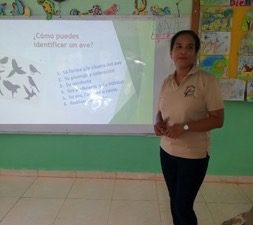

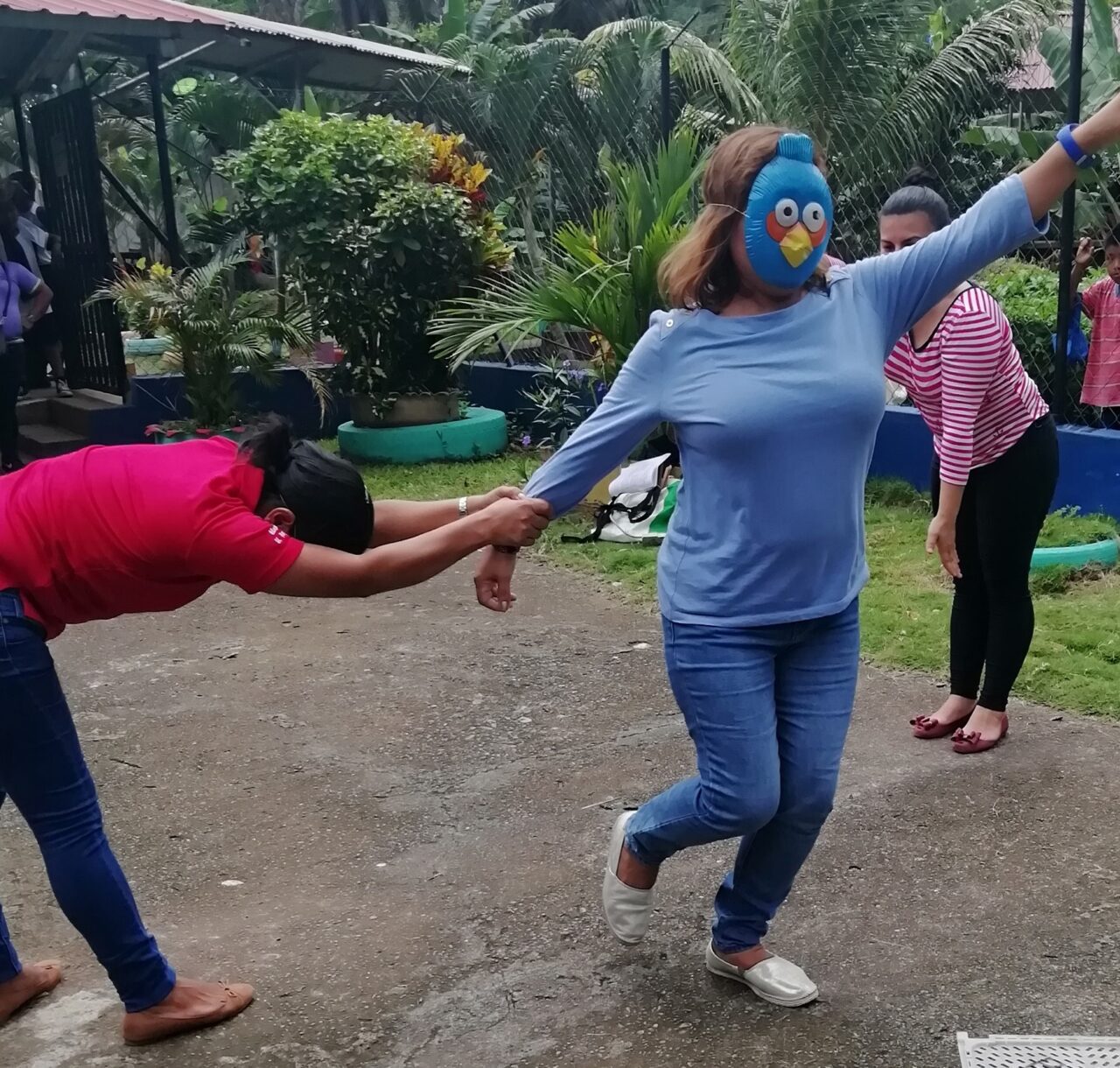
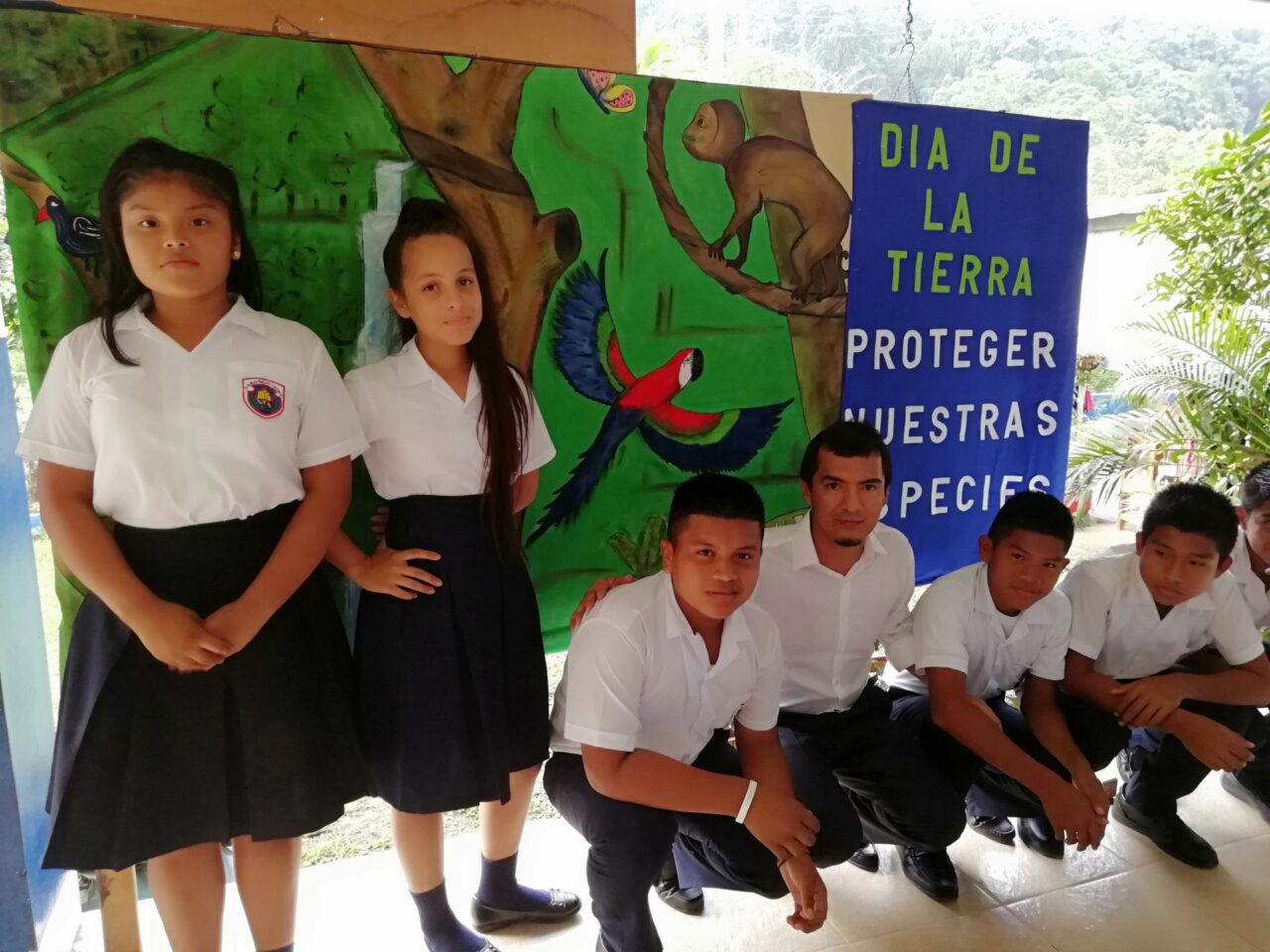



At the beginning of the workshops, there was an exhibition of a selection of colorful drawings made by schoolchildren. The students and their agricultural teacher, Melisa Rodríguez also worked in the school garden to clean it so that the birds could find a home in their community. The students also planted medicinal plants of the region such as coconut, bamboo, and pumpkin.
The students heard interesting and educational discussions about waste treatment. Thanks to the presence and participation of Yutzel Mendoza and Triana Ortega from the company Bliss Panama (from Panama City), information and interesting facts about the garbage problem in Panama was shared with the participants. After learning about the problem in their own country, the participants were dedicated to reducing, reusing, and recycling.
The representative of Alianza Bocas Foundation (Fundación Alianza Bocas) (from Isla Colón), Ángel Díaz, spoke about the problems of plastics pollution in the province, and how they harm different species of birds, fish and aquatic mammals of the region. The Alianza Bocas Foundation (Fundación Alianza Bocas) is an organization committed to the total elimination of the sale of plastic bags with its “Zero Waste in Bocas” project. The participants were thrilled to realize that there are simple things they can do and teach others to help local birds and their habitats, such as avoiding the use of plastic bags!
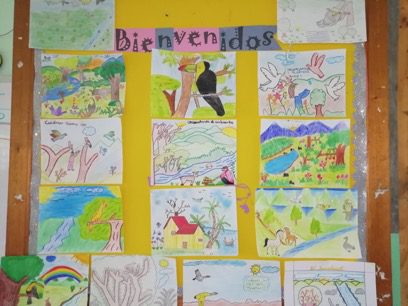
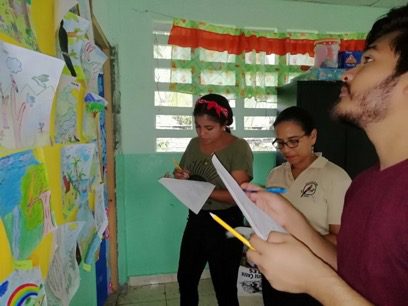
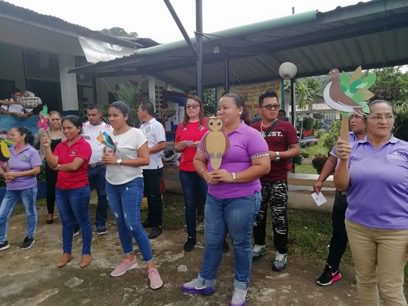






The Collective Endemic group, an organization of biologists, artists, and graphic designers, talked about how to use art as a tool to teach science. Kevin Lin and Sara Duncan of Collective Endemic also created fun workshops for the children about science that they combined with artistic activities. The teachers observed local birds during the activities. For many, it was the first time they stopped to observe the birds in a forest. They were very excited to learn how to observe birds so that they could teach their students! The teachers were fascinated with the birds they observed in their community.Professor Yasmin Cerrud introduced teachers to the materials from the BirdSleuth Curriculum. The teachers also learned how to upload bird observations to eBird. They talked about how inserting data helps citizen science and bird conservation. After entering the data, the students talked about their favorite birds!
The workshops representative of the Tour Alto del Chorro organization, Mr. Elvick Castillo, of the district of Changuinola, spoke of the need for habitat conservation. He then spoke about the positive effects conservation would have on the villages and it would begin the start of ecotourism in Bocas del Toro!



At the end of the workshop, participants enjoyed a field trip to the Palo Seco Protected Forest Area. Participants were able to observe incredibly beautiful water sources as well as the great biodiversity of flora and fauna in their region! At the end, the participating teachers from 11 different schools in the region committed themselves to meet again later in the year and share their experiences running workshops. After the workshops and activities, it was exciting to read the impressions of the participating teachers about everything that was done. Here are some of the comments:
“Environmental education is vital to every human being. I am happy to know that Bocas del Toro communities have these workshops” Kevin Lim, Facilitator – Endemic
“This workshop is not like any workshop. It is original, creative and dynamic. The coordinators show interest and motivation to promote the conservation of the environment. It is fun, and in turn, transmits knowledge that can be put into practice with students.”
“I was impressed with the whole issue of what we can achieve in our schools and community through recycling education.”


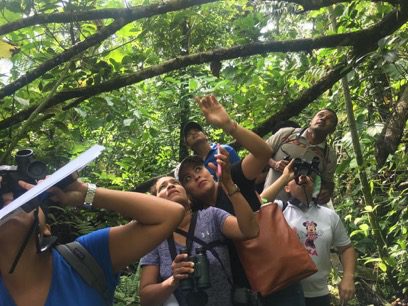
The General Basic Education Center of Bajo Cedro would like to thank the Community Board of Bajo Cedro through Mr. HR Fidel Barría, who supported the activities with a lunch for the participants one of the days of the event. Thank you to the organizers of the event, Professors Esther Bonilla and Kiriam Palacios. They made sure everything went as planned. Yazmin Cerrud, coordinator of the C.E.B Bird Detective group, San Mateo was a great help. She traveled from the city of David to help observe birds and teach how to capture data and register it on the eBird platform. Thanks to the Municipal Council of Chiriquí Grande who supported by donating lunches for one of the days of the workshop. The office of the mayor of the district of Chiriquí Grande, Engineer H.A. Guillermo Rivera also supported the event with the transportation of the participants from the school to the Protected Forest of Palo Seco. Finally, many thanks to CATIE (Tropical Agricultural Research and Teaching Center) for supporting and being a link between the Cornell Lab of Ornithology and our educational institution. Big thanks to the legal representative of CATIE in Panama, Mr. Elvin Britton Jiménez, and the Biologist Katherine Araúz Ponce, M.Sc., specialist in management and conservation. We are grateful to have had the support from the Cornell Lab of Ornithology as well as the unconditional support and professional follow-up from Marta del Campo, Coordinator of Community Outreach. It is also very important to mention the permanent support of the director of the Bajo Cedro Educational Center, Professor Yamilka Bellido who said:
“I want to congratulate and thank all the teachers from the so many different schools that accepted this great challenge and dared to participate in this opportunity to learn about the environment and develop new strategies from citizen science. As well as learning about the birds that we have in our community, congratulations to all and hopefully this is just the start of our meetings.”